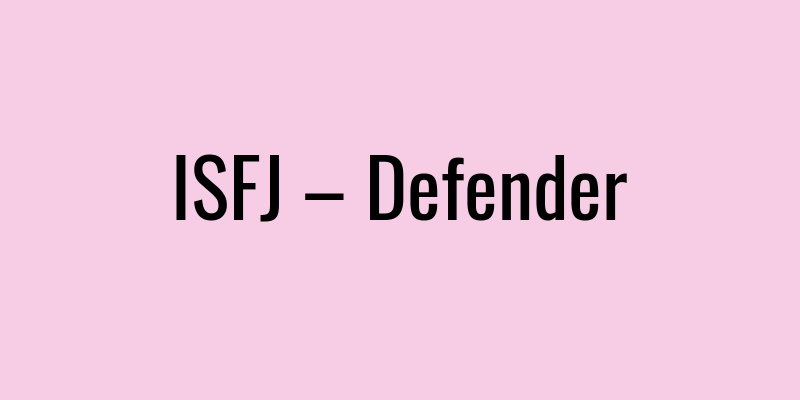
The Pros and Cons of Being an ISFJ
Exploring the Benefits and Drawbacks of the ISFJ Personality Type
The Myers-Briggs Type Indicator (MBTI) is a widely used personality assessment that categorizes individuals into 16 distinct personality types. One such type is ISFJ, which stands for Introverted, Sensing, Feeling, and Judging. ISFJs are known for their empathetic nature, attention to detail, and strong sense of duty. In this article, we will explore the advantages and disadvantages of this personality type, shedding light on what makes ISFJs unique and the challenges they may face in various aspects of life.
Understanding the intricacies of the ISFJ personality type can provide valuable insights into how they navigate the world, interact with others, and approach different situations. By delving into the pros and cons of being an ISFJ, we can gain a deeper appreciation for the strengths they bring to the table as well as the areas they may need to navigate with caution.
Pros
ISFJs possess a unique set of qualities that bring significant advantages in various aspects of life. From nurturing relationships to excelling in certain careers, the ISFJ personality type offers a range of benefits that deserve recognition.
Missing a pro?
Cons
While the ISFJ personality type comes with notable strengths, there are also potential challenges that individuals of this type may encounter. These drawbacks can influence their personal relationships, professional endeavors, and overall well-being, warranting a closer examination of the hurdles they may face.
Missing a con?
Conclusion
The ISFJ personality type encompasses a blend of valuable strengths and potential challenges, shaping the way individuals with this type navigate the world and interact with others. By recognizing and understanding the advantages and disadvantages of being an ISFJ, individuals can harness their strengths while addressing areas that may require mindful attention and growth. Embracing the complexity of the ISFJ personality type fosters a greater sense of empathy and appreciation for the diverse strengths and struggles within the spectrum of human personalities.
What do you think?
Do you think the pros outweigh the cons?









